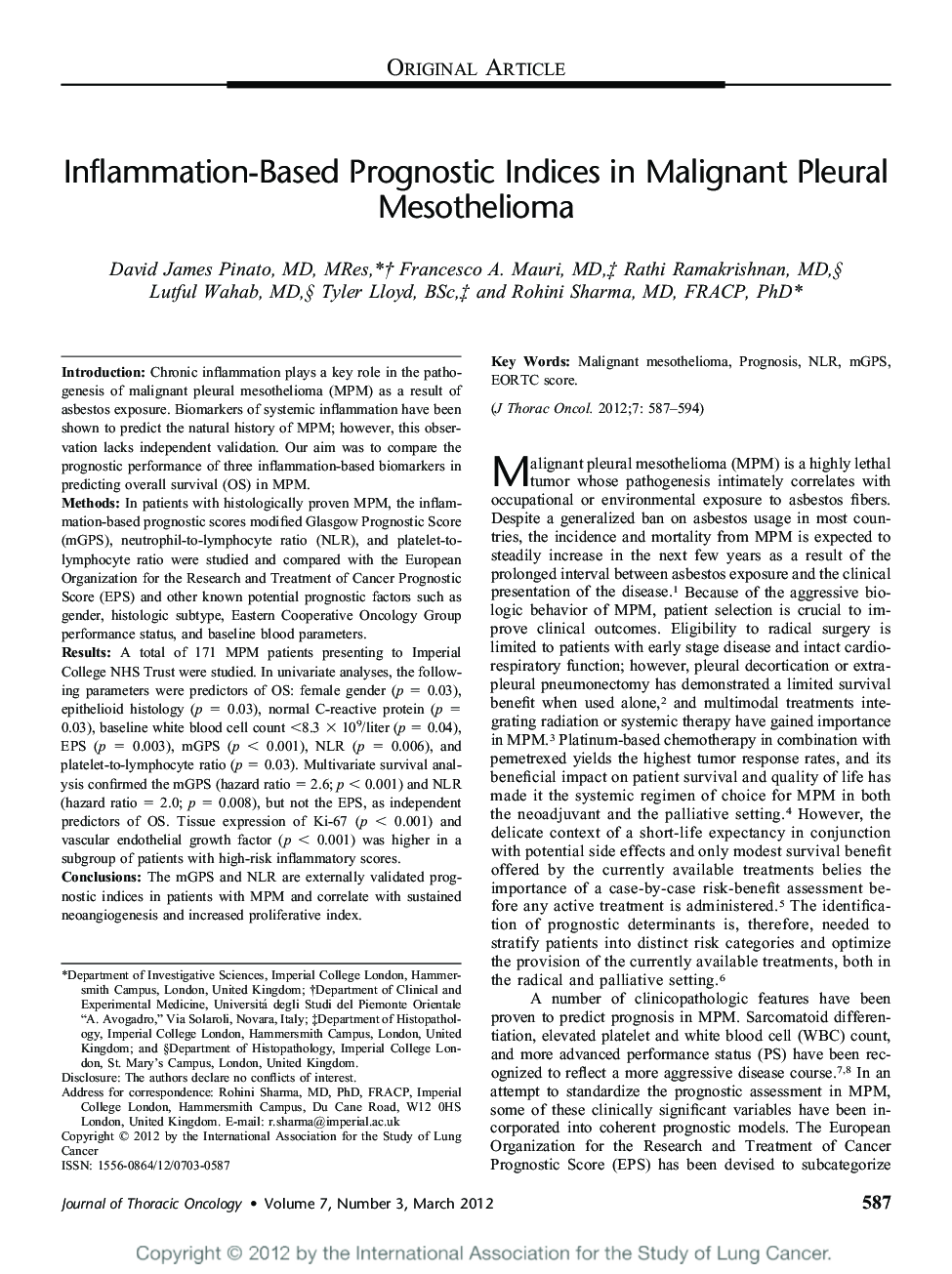| Article ID | Journal | Published Year | Pages | File Type |
|---|---|---|---|---|
| 3990707 | Journal of Thoracic Oncology | 2012 | 8 Pages |
IntroductionChronic inflammation plays a key role in the pathogenesis of malignant pleural mesothelioma (MPM) as a result of asbestos exposure. Biomarkers of systemic inflammation have been shown to predict the natural history of MPM; however, this observation lacks independent validation. Our aim was to compare the prognostic performance of three inflammation-based biomarkers in predicting overall survival (OS) in MPM.MethodsIn patients with histologically proven MPM, the inflammation-based prognostic scores modified Glasgow Prognostic Score (mGPS), neutrophil-to-lymphocyte ratio (NLR), and platelet-to-lymphocyte ratio were studied and compared with the European Organization for the Research and Treatment of Cancer Prognostic Score (EPS) and other known potential prognostic factors such as gender, histologic subtype, Eastern Cooperative Oncology Group performance status, and baseline blood parameters.ResultsA total of 171 MPM patients presenting to Imperial College NHS Trust were studied. In univariate analyses, the following parameters were predictors of OS: female gender (p = 0.03), epithelioid histology (p = 0.03), normal C-reactive protein (p = 0.03), baseline white blood cell count <8.3 × 109/liter (p = 0.04), EPS (p = 0.003), mGPS (p < 0.001), NLR (p = 0.006), and platelet-to-lymphocyte ratio (p = 0.03). Multivariate survival analysis confirmed the mGPS (hazard ratio = 2.6; p < 0.001) and NLR (hazard ratio = 2.0; p = 0.008), but not the EPS, as independent predictors of OS. Tissue expression of Ki-67 (p < 0.001) and vascular endothelial growth factor (p < 0.001) was higher in a subgroup of patients with high-risk inflammatory scores.ConclusionsThe mGPS and NLR are externally validated prognostic indices in patients with MPM and correlate with sustained neoangiogenesis and increased proliferative index.
